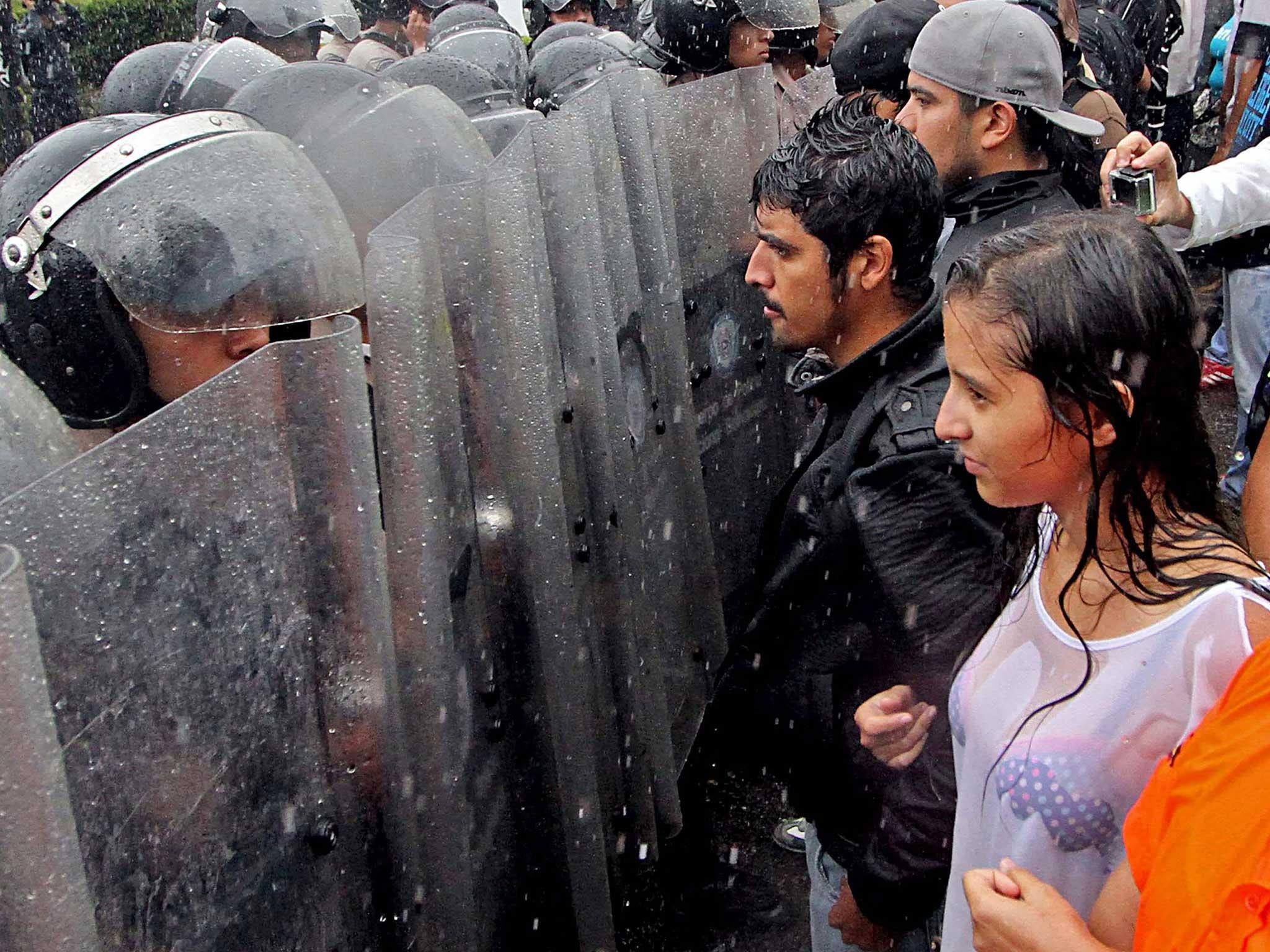Venezuelan opposition urges people to take to the streets over 'coup'
The Government has blocked a referendum demanding the removal of President Nicolas Maduro

Your support helps us to tell the story
From reproductive rights to climate change to Big Tech, The Independent is on the ground when the story is developing. Whether it's investigating the financials of Elon Musk's pro-Trump PAC or producing our latest documentary, 'The A Word', which shines a light on the American women fighting for reproductive rights, we know how important it is to parse out the facts from the messaging.
At such a critical moment in US history, we need reporters on the ground. Your donation allows us to keep sending journalists to speak to both sides of the story.
The Independent is trusted by Americans across the entire political spectrum. And unlike many other quality news outlets, we choose not to lock Americans out of our reporting and analysis with paywalls. We believe quality journalism should be available to everyone, paid for by those who can afford it.
Your support makes all the difference.Opposition leaders in Venezuela are calling on supporters to take to the streets in protest after a move to challenge the country's deeply unpopular president was blocked.
The socialist government, led by President Nicolas Maduro, stands accused of "absolute authoritarianism" after closing off the last legal avenue open to an increasingly restless opposition.
A ruling on Thursday halted growing attempts to make Mr Maduro face a recall referendum. The 'coup', as it's being described, took place just days before the opposition was due to begin collecting signatures – 20 per cent of registered voters need to sign to force a vote to oust the President.
Fears are the controversial move, which has been roundly condemned, could plunge the already unstable nation into civil unrest. A series of marches have been organised and hundreds of university students took to the streets of Caracas, the capital, on Friday to protest. Street demonstrations have been muted since a 2014 crackdown on weeks-long protests left dozens dead.
Meanwhile, a leading government figure is calling for the arrest of high-profile government critics. .
Mr Maduro, the political heir of late President Hugo Chávez, has overseen Venezuela’s downward spiral into severe economic crisis and rampant violence. Polls have suggested that the socialist leader would be heavily deefated in a recall vote.
“What we saw was a coup,” said former presidential candidate Henrique Capriles, who had been the leading champion of the recall effort. “We'll remain peaceful, but we will not be taken for fools. We must defend our country.”
International condemnation was swift. Twelve western nations, including the US and even leftist leaning governments such as Chile and Uruguay, said the suspension of the referendum, along with travel restrictions which have been imposed on eight opposition leaders, affected the prospect of finding a peaceful solution to the nation's crisis.
The socialists won power nearly two decades ago with the election of the popular former President Hugo Chavez, and for years enjoyed easy election victories. But with the economy in free fall, polls show most Venezuelans have turned against the party. In response, the administration has become increasingly autocratic. Critical television stations have been closed and several leading opposition activists have been imprisoned. The country's supreme court, packed with government supporters, has endorsed decree powers for Maduro and said he can ignore Congress. The move followed a landslide victory for the opposition in legislative elections.
Polls suggest 80 per cent of voters wanted Maduro gone this year. Other local elections have also been postponed with no reasons given for the delay. Critics have accused the socialist party of simply putting off elections indefinitely.
In response, in a televised address, Mr Maduro urged calm. “I call on everyone to remain peaceful, to engage in dialogue, respect law and order and not to do anything crazy,” he said.
Amid rising tensions, former Spanish Prime Minister Jose Luis Zapatero, who has been attempting to mediate dialogue between the two sides, is in Caracas and expected to meet with representatives of the opposition and the government.
That timing of the recall referendum ban is crucial. A successful vote to oust Mr Maduro this year would have triggered a presidential election and given the opposition a good shot at winning power. If he is voted out in 2017, though, his vice president will finish the presidential term, leaving the socialists in charge.
AP
Join our commenting forum
Join thought-provoking conversations, follow other Independent readers and see their replies
Comments